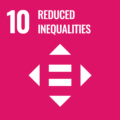Research4Life – Celebrating 20 years of lifesaving research
Categories: NEWS, INCLUSIVE HEALTH, INCLUSIVE RESEARCH
Tags: SDG3, SDG10
Raharman Tamang, 20, was using a circular saw to cut a steel rod at a metal shop in Bhaktapur, Nepal, when the rod snapped and impaled his brain partially paralyzing him. Frantic relatives rushed him to a nearby hospital where they were told it was not possible to treat him. A second hospital turned him away because there were no beds available in intensive care. Finally, four hours after the accident, he was admitted to a third.
“I was on call when the patient came in,” said neurosurgeon Pratyush Shrestha. “I was the most senior person present at the hospital, but it was a totally new case for me. So, while the patient was being prepared for surgery, I had to do a very quick literature review. I found an article on a similar case in India in Pubmed. Thanks to the full text I got via Research4Life, I was able to make a plan for the surgery.”
The surgery was successful and Raharman made a full recovery. Had Dr Shrestha not been able to access the article through Research4Life, the outcome might have been different. “Here we can’t pay for scientific journals which aren’t open access,” said the neurosurgeon, who plans to publish a paper about the case in a peer-reviewed journal – a reminder that access to research not only saves lives, it also leads to new research.

Research4Life has been providing free and low-cost access to scientific research for 20 years. It formed after a Kenyan researcher came into the World Health Organisation (WHO) Library looking for a paper he had discovered on the internet. Librarian Barbara Aronson knew that doctors, scientists and students in the world’s poorest countries had insufficient access to peer-reviewed journals because they could not afford the subscriptions. She also knew this meant they could not contribute to the global scientific discourse without risk of research replication. The Kenyan researcher, who found the paper online from his office in Nairobi, gave her the idea that publishers – many of which were on the path to digitization – might be able to solve this problem. Together with Maurice Long from STM, the trade organisation for academic publishers, she organized a meeting between six leading publishers and the WHO.
Read the full article on RELX Perspectives: “Research4Life – Celebrating 20 years of lifesaving research“, Laura Peek, February 2022.


















